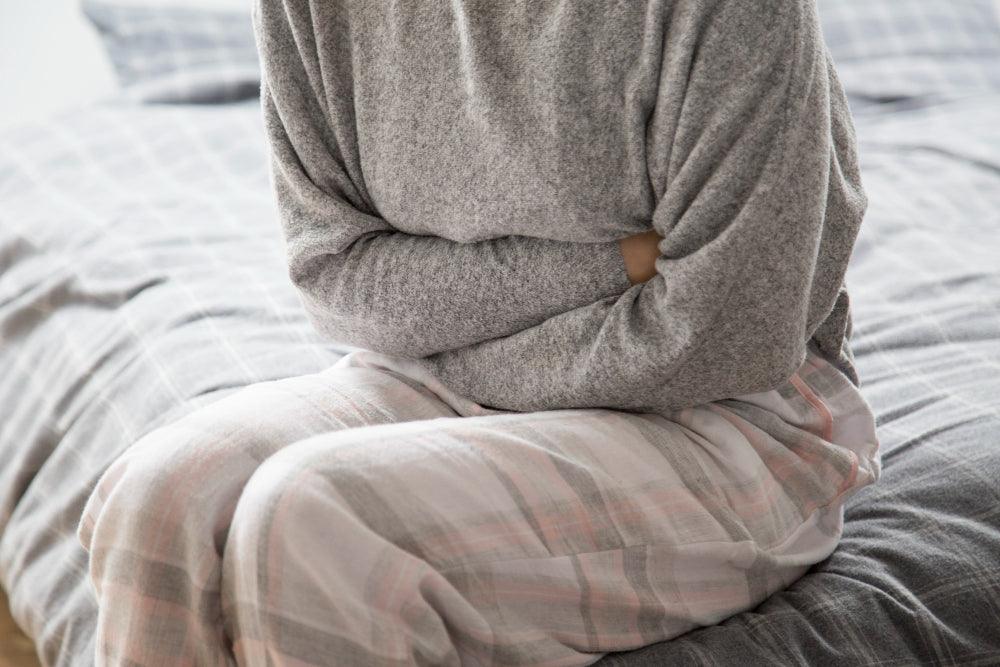What Does a PCOS Belly Look Like?



First and foremost, let's define PCOS. PCOS stands for polycystic ovary syndrome, a hormonal imbalance that affects gut health and is caused by the ovaries producing excess hormone levels. This may be a phrase that some ladies are not very familiar with. It is a typical hormonal disease that is very frequent in women, particularly those of reproductive age or childbearing age. PCOS are small cysts that can be found in the ovaries. However, you should not consider their ovarian cysts.
Most women with PCOS have a pot belly, particularly in the lower abdomen. Hormone fluctuations can cause these symptoms.
Aside from that, women with PCOS could experience irregular or unusually extended menstrual cycles and elevated levels of the male hormone androgen. Ovaries that fail to produce eggs consistently may generate a large number of little fluid-filled groupings known as follicles.

There have been studies that point to genetics as one of the primary contributors to the problem. On the other hand, there are several other aspects that a woman must take into account, including the following:
• A higher level of androgens, which are male hormones, can induce menstrual cycle irregularities. It is because raised androgen levels hinder the ovaries from releasing eggs, which leads to monthly cycle irregularities. When androgen levels in your body are high, you increase your risk of developing acne and may also have increased hair growth.
• Insulin resistance: when insulin levels are high, the ovaries produce and release male hormones because of insulin resistance (androgens). Consequently, increased male hormone prevents ovulation and contributes to other symptoms of polycystic ovary syndrome (PCOS).
Insulin is a hormone that regulates how your body metabolises glucose (also known as sugar) and uses it as an energy source. Insulin resistance occurs when your body cannot process insulin appropriately, which results in elevated amounts of glucose in the blood. It is a risk factor for developing diabetes, yet increased glucose levels and diabetes are not present in all people with insulin resistance. It is not the only health problem that can be caused by obesity and being overweight. Even if your blood glucose levels are normal, you may still have insulin resistance if you have a high insulin level.
Women diagnosed with polycystic ovary syndrome (PCOS) may likely develop type 2 diabetes due to insulin sensitivity and high blood sugar levels, high blood pressure, cardiovascular issues, and endometrial cancer. In the worst-case scenario of PCOS symptoms, they can also experience infertility, increased muscle mass excessive hair growth, acne, oily skin, and belly fat weight gain, also known as PCOS belly fat.
You may be able to alleviate some of the symptoms of PCOS with a few simple lifestyle changes such as a PCOS diet, avoiding processed foods, or consumption of healthy fats or whole foods plant-based, but unfortunately, there is no known way to avoid PCOS. For instance, consuming meals high in nutrients, engaging in regular physical activity, maintaining a healthy diet, and losing weight are all things that can help you prevent the adverse symptoms of PCOS.

Polycystic ovarian syndrome, also known as PCOS, is a common hormonal disorder that impacts reproductive hormones and primarily affects women. Some of the most prevalent symptoms are excess visceral fat, irregular periods, or the absence of menstruation. If you have PCOS, you may occasionally feel pelvic pain and irritable bowel syndrome.
Some obese women find it challenging to manage the physical associated symptoms, including excess hair growth, unwanted facial hair, acne, darkening of inner thighs and weight gain. You may experience an improvement in how you feel about your image after undergoing cosmetic treatments such as electrolysis or laser hair removal. Have a conversation with your primary care physician about the most effective treatments for the symptoms that are making you uncomfortable, especially a bulging belly and excess fat. If you gain weight, they may ask you to lower your carb intake and have a high protein diet such as a low glycemic index diet. They may also recommend birth control pills that may help in regulating your menstrual flow and avoid missed periods.
Understandably, you should stop binge eating or emotional eating, particularly high-fat dietary habits if you want to lose weight. Instead, you should choose a low-carb diet and fermented foods to improve your exposure to healthy gut bacteria.
If you think you may have symptoms similar to that of PCOS, order one of our private at-home blood tests to determine if you need treatment. See our PCOS Test here.










Plus get the inside scoop on our latest content and updates in our monthly newsletter.